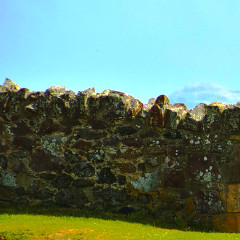
The chorus:
You lay down, you lay down,
And I’ll step upon your back,
Up high enough, above the fence
To see all the way to glory land.
With this one little stanza, Taylor grabs two very powerful images of our savior. The first is Christ laying down his life for our salvation. “Greater love has no one than this, that someone lays down his life for his friends” (John 15.13). Christ showed us the greatest of loves by willingly laying down his life for us, his friends.
The second is what that sacrifice allowed. In laying down his life, we can “step upon [Christ’s] back,” as the song puts it. Christ is like the big brother, holding us up to look over the fence. And what do we see? Glory land.
When Christ first approached his disciples, John records that Jesus told them, “you will see heaven opened and the angels of God ascending and descending on the Son of Man” (1.51).
The image is prefigured in Genesis 28, when Jacob dreams of a ladder upon which angels traffic between heaven and earth. The ladder, Jesus says, is himself. Christ is the connection between heaven and earth—a priestly function—and it is only through his doing that we see heaven. We’re too short to see above the fence, so we stand upon his back.
Christ stoops down in his incarnation, redeems us through his voluntary crucifixion, and lifts us up to glory by his resurrection. Innumerable books have been written on the subject, but the beauty of good song writing is that Taylor deftly covers the same ground in just twenty-six simple words.












